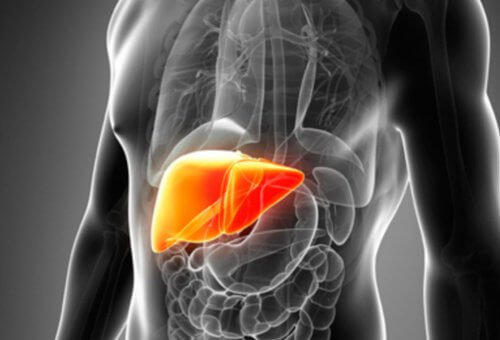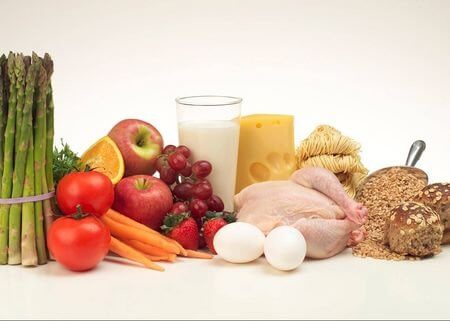7 Reasons Why You Should Detox Your Liver and How to Do it


Reviewed and approved by the doctor Maricela Jiménez López
Your liver is one of your body’s most important organs. It is responsible for filtering and eliminating the toxins in your body. Consequently, it plays a central role in your metabolism, immune system, and digestive system, among others.
However, most of us put a lot of strain on the liver, slowing it down and causing toxins to build up that can affect your health. That’s why in today’s article we want to share seven reasons why you need to detox your liver.
Why is it important to detox your liver?
Your liver is your body’s main cleansing mechanism, filtering your bloodstream day and night to eliminate toxins. Detox is an important series of processes that keep your body healthy and free from waste products that can cause disease.
In addition, this organ is also responsible for filtering and processing all your hormones, ensuring proper balance and hormone operation. Any disturbance to this function can cause hormonal imbalances like too much estrogen, deficient insulin production, and more.
When you detox your liver you remove toxins and waste products, fight free radicals, and eliminate heavy metals. In addition, free radicals are fought and the elimination of heavy metals accumulated in the body is also promoted.
However, in addition to these things, there are seven other reasons you should be detoxing your liver right now.
If you have a diet that’s high in saturated and processed fats
Many of the foods we consume today are loaded with saturated fats and processed fats that accumulate in our bodies. The consumption of fried foods, non-organic foods of animal origin, processed foods, canned foods, and sausages, among others, make the liver work extra and easily exhaust itself. This is because the liver is responsible for breaking down all these foods and precisely these are difficult to process.
Your diet is too high in processed carbohydrates

Foods with lots of processed carbohydrates, like white bread, pasta, sugary drinks, and sweets can also overload the liver, which has to work harder to regulate your blood sugar levels.
If your diet is rich in these kinds of foods, it’s a very good idea to detox your liver on a regular basis.
Alcohol consumption or prescription medications
Alcohol and prescription drugs are difficult for the liver to process. When you drink too much or take certain medications for long periods of time, your liver can begin to suffer from disorders like fatty liver disease and cirrhosis.
Read also: How to Make 5 Teas to Detox Your Colon
If you breathe polluted air
There aren’t many places on earth where you can breathe perfectly clean and healthy air. Most of us are sucking in toxic particulates that can affect our long-term health. While it’s true that your lungs are the first to absorb these toxic substances, it’s the liver that is responsible for filtering and removing them from your body.
You don’t get enough sleep or rest

You’re getting too much exercise
Although exercise is essential to the removal of toxins from the body, abusing it can end up causing you harm.
Getting too much exercise could exacerbate the effects of free radicals and keep your liver from having enough time to fight them. If this sounds like you, give your liver a break and detox.
If you have a diet that’s poor in micro-nutrients

Micronutrients are essential for good liver function. Your diet should provide adequate amounts of vitamins C, B3, B6, and E, along with folic acid and much more. You also need plenty of essential amino acids like glycine and taurine. Calcium is also important. If your diet is deficient in any of these, it’s important to change your eating habits or start taking supplements.
All cited sources were thoroughly reviewed by our team to ensure their quality, reliability, currency, and validity. The bibliography of this article was considered reliable and of academic or scientific accuracy.
- American Liver Foundation. (2017). Liver wellness. Asociación Española para el Estudio del Hígado, Libro blanco de hepatología en España, 2015
- National Institutes of Health. (2014). “Su hígado rinde”, en la web de la National Institutes of Health. https://salud.nih.gov/articulo/su-higado-rinde/
- Sevastianova K et al. (2012). “Effect of short-term carbohydrate overfeeding and long-term weight loss on liver fat in overweight humans”, Am J Clin Nutr. 2012 Oct;96(4):727-34. Epub 2012 Sep 5.
- Schwarz JM et al. (2015). “Effect of a High-Fructose Weight-Maintaining Diet on Lipogenesis and Liver Fat”, J Clin Endocrinol Metab. 2015 Jun;100(6):2434-42.
- Younossi ZM et al. (2016). “Global epidemiology of nonalcoholic fatty liver disease-Meta-analytic assessment of prevalence, incidence, and outcomes”, Hepatology. 2016 Jul;64(1):73-84.
- Pérez-Calvo, J. (2013). Nutrición energética para la salud del hígado y la vesícula (Vol. 1). Edaf.
- Williams, R., & Gimson, A. E. (1991). Intensive liver care and management of acute hepatic failure. Digestive diseases and sciences, 36(6), 820-826. https://link.springer.com/article/10.1007/BF01311243
- Vienken, J., & Christmann, H. (2006). How can liver toxins be removed? Filtration and adsorption with the Prometheus system. Therapeutic Apheresis and Dialysis, 10(2), 125-131. https://onlinelibrary.wiley.com/doi/abs/10.1111/j.1744-9987.2006.00353.x
This text is provided for informational purposes only and does not replace consultation with a professional. If in doubt, consult your specialist.








